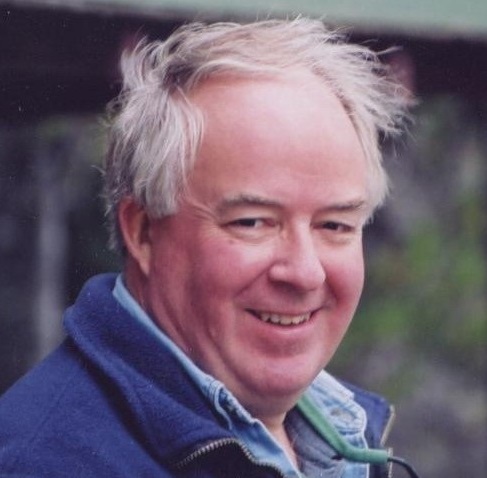
Last week's webinar HERE "Universities have abandoned their academic mission. Can it be restored?" featured Mark Mercer as presenter,- philosopher and academic advocate, about the status and challenges facing higher education today. Loud and clear is that the mission to educate is being eroded as the academic mission and relevance of merit have embraced social objectives as encompassed in EDI (equity, diversity, inclusion). These social objectives have compromised the role of the university as embodied in the liberal arts of inquiry, empiricism and rational thought - with little hope for a turnaround. Viewer input addressed additional compromises to academic freedom including the pursuit of research grants and misalignment with industry and government. - Editor, Perry Kinkaide, KEInetwork.net
Navigating the Quagmire: Challenges and Reforms in Education
In the realm of education, a pervasive sense of bewilderment surrounds the disconcerting downturn in academic performance, a phenomenon insiders attribute to persistent underfunding. The staggering allocation of $16.4k (US) and $13.7k (Canadian) per classroom annually in K-12, and $29.0k per higher education student, beckons the pressing question: Is there a discernible link between funding and academic achievement? And, in this financial equation, does accountability walk hand in hand with responsibility?
A multifaceted debate ensues, exploring strategies ranging from bolstering teaching staff and reducing class sizes, to abandoning books as too expensive and opting for infotech instead. Then there's the conroversies over standardized testing, the relevance of EDI, and declining performance and graduation rates. As the discourse expands, skepticism grows.
Associated quandaries persist. Revelations of school boards manipulating failing test scores, reminiscent of post-Covid adjustments, cast shadows over the integrity of assessments and raise unsettling questions about potential misconduct by educational authorities. Simultaneously, the departure from traditional teaching tools, such as books, in favor of on-screen learning, coupled with a pervasive addiction to cell phones, amplifies the chaos.
Endeavors to reform are in motion, epitomized by Alberta's groundbreaking move to tether post-secondary funding to performance metrics—a decision not without its share of protests. The pivotal inquiry remains: Can these measures catalyze improvements in academic performance, or does the education system demand a more profound metamorphosis?
The clash between private and public interests in education including health and social services mirrors a broader societal struggle, bringing the entire mission of the welfare state into sharp focus. Stakeholders—clients, suppliers, and politicians—unanimously convey their discontent, underscoring the imperative for decisive leadership. Yet, the emphasis must pivot from mere protestations to resolute resolutions, setting the stage for our forthcoming discourse on leadership, marking the culmination of our education series. The rallying cry is for inventive ideas, conciliatory measures, and the proposition of a new paradigm to traverse the deepening chasm and usher in a positive transformation. Editor - KEInetwork.net
WEBINAR
Learning As Education's Grand Purpose. Is it being lost?
4:00PM MST Thursday, November 23th, 2023
HERE https://us02web.zoom.us/j/82390691947
Calendarize the Webinar HERE for Outlook
Barry Cooper will be discussing with the webinar host - Perry Kinkaide, and you - the viewers, campus leadership, the challenges and what to expect. He is a strong proponent of universities serving their mission best by promoting and defending wide freedom of expression on campus, maintaining that the vile things said on campus should not lead us to limit expression or to waiver in our commitment to learning in the pursuit of knowledge, tolerance, and understanding.
 Barry Cooper, a fourth generation Albertan, was educated at Shawnigan Lake School, the University of British Columbia, and Duke University. He taught at universities in Laurentian Canada before coming to the University of Calgary in 1981. He has translated, edited, or written over 35 books, most recently (with Marco Navarro-Génie), Canada’s COVID: The Story of a Pandemic Moral Panic. He has written extensively on Canadian politics, and the political philosophy of Eric Voegelin. In 2004, he published New Political Religions: An Analysis of Modern Terrorism, a copy of which was recovered from the personal library of the late Osama bin Laden when his compound in Abbottabad was visited by members of Seal Team Six. In 2020 he published Paleolithic Politics: The Human Community in Early Art and is currently working on a book on Neolithic political symbols.
Barry Cooper, a fourth generation Albertan, was educated at Shawnigan Lake School, the University of British Columbia, and Duke University. He taught at universities in Laurentian Canada before coming to the University of Calgary in 1981. He has translated, edited, or written over 35 books, most recently (with Marco Navarro-Génie), Canada’s COVID: The Story of a Pandemic Moral Panic. He has written extensively on Canadian politics, and the political philosophy of Eric Voegelin. In 2004, he published New Political Religions: An Analysis of Modern Terrorism, a copy of which was recovered from the personal library of the late Osama bin Laden when his compound in Abbottabad was visited by members of Seal Team Six. In 2020 he published Paleolithic Politics: The Human Community in Early Art and is currently working on a book on Neolithic political symbols.
Barry has written recently about university leadership in the face of social justice challenges. HERE and HERE and HERE
Barry has lectured in Europe, the United States, India, Australia, New Zealand, and China. He has received numerous on-going research grants from North American and European granting agencies, including two major awards, the Konrad Adenauer Award from the Alexander von Humboldt-Stiftung, and a Killam Research Fellowship. He was elected a Fellow of the Royal Society of Canada in 1993.
NEWSWORTHY
AI in Turmoil - Regulators Stepping up
Sam Altman - CEO for OpenAI, was fired by his Board HERE
Several senior staff subsequently resigned HERE
OpenAI's $Bs investor - Microsoft, is unphased HERE
Sam Altman now in discussion with OpenAi to return as CEO HERE
US setting guardrails for develpment of AI HERE as is Asia HERE
Economy in Recovery
Productivity rising, interest rates stablizing - the economy is healthy HERE
Tinker, Tailor, Journalist, Spy
Journalist recounts communist efforts to recruit him as a spy HERE